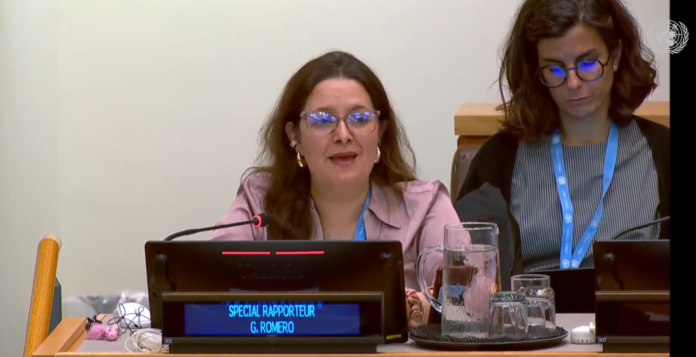United Nations rapporteurs have expressed serious concerns over the Turkish government’s reintroduction to parliament of the controversial “agents of influence” bill, warning it could severely restrict freedoms of expression, association and assembly.
In a letter dated February 12 and made public on Tuesday, the rapporteurs said the proposed Article 339/A of the Turkish Penal Code could be “at odds with the obligations of [Turkey’s] Government under international human rights law.” The legislation penalizes individuals acting “in line with the strategic interests or instructions of a foreign state or organization” against Turkey’s security or political interests, with prison terms ranging from three to seven years.
The law’s broad and undefined terms, such as “state security,” “political interests” and “strategic interests,” undermine legal certainty and could be misused to suppress legitimate activities. The rapporteurs urged Turkish authorities to reconsider the legislation to ensure compliance with international human rights standards.
The law, if passed, could target organizations that receive foreign funding, hinder freedom of expression and allow authorities to criminalize dissent.
“The unpredictability of its application could render the possibility for unlawful inspection, suspension, and even dissolution of associations that are considered to be committing ‘crimes against the security of the state’ for their alleged alignment with foreign entities,” the rapporteurs wrote. “This may include donors and any other actor that provides financial, in-kind and/or technical support to civil society, human rights defenders, and the independent media.”
Counterterrorism and national security laws must comply with international human rights standards, including the International Covenant on Civil and Political Rights (ICCPR), which Turkey ratified in 2003.
The rapporteurs warned that vaguely defined national security laws could be used as a tool for repression. “Merely referring to the general security situation is insufficient; national, political, or governmental interests are not synonymous with national security or public order,” the letter said.
States must prove that any restrictions on freedoms are necessary and proportionate to an actual, specific threat. “Restrictions should not impair the essence of the concerned right or be aimed at discouragement and casting a chilling effect to deter its enjoyment,” the rapporteurs cautioned.
The bill, initially introduced in October 2024, was withdrawn in November following significant backlash from opposition parties and civil society groups.
The Turkish government has defended the bill, stating it is necessary to address national security concerns and protect the country’s political interests. Critics, however, argued that its vague definitions could lead to arbitrary enforcement against journalists, activists and nongovernmental organizations. Despite these concerns, the government resubmitted the bill to parliament in January 2025, asserting the need to combat espionage and foreign interference.
The reintroduction of the “agents of influence” bill has reignited debates within Turkey, with civil society organizations and opposition parties warning of its potential to stifle dissent and undermine democratic freedoms.















